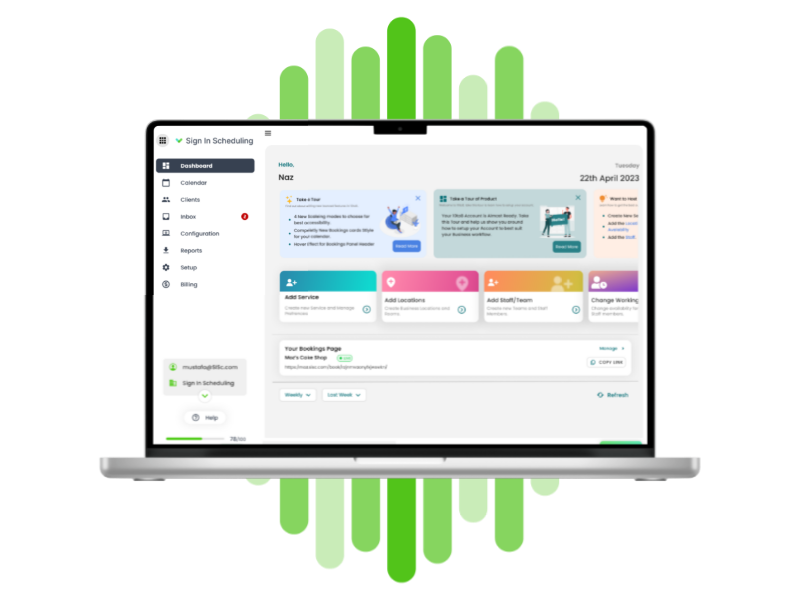Are you a top-notch salesperson who’s looking to take your talent to the virtual world? Whether it...
8 Expert Sales Tips To Close More Deals
So you’ve finally found the perfect prospecting tools for your sales strategy and you are trying to engage more with the prospects via outreach. Now what?
Well, it’s about time that you started closing deals. Yes, already, as this will be a longer process. With our expert sales tips, you will be able to design the perfect staircase from having the initial chat with your prospect of signing a contract and closing the deal.
1. Build a relationship
First and foremost, it’s not a deal, it’s a relationship. People want to be valued and if you only care about the deal itself, you’re going to lose it and not close it.
You need to make an effort to build a relationship with your clients. Gather information, listen to what they say, gain their trust and constantly add value. This relationship has to be a two-way street, where everybody contributes something to make it successful as opposed to a one-sided deal, where you tell your client what they’ll get and they can decide whether they settle for it or not. Negotiate and make concessions.
Building a valuable relationship will take time, but pushing a ‘simple’ deal through without having a solid base built is even more time-consuming and often not even successful.
2. Understand your clients
To continue the thread, you must understand your clients and their pain points. They won’t buy your product because they have some money to spare or because of the tone of your voice. They have a problem that you can possibly solve for them.
Remember that you are offering a solution that will make your clients’ lives better somehow. To find how your product or service can help, first, you need to understand what difficulties your clients face and the reason they are talking to you. Simply listen to what they have to share with you and collect all the bits and pieces you can. As a result, when it comes to selling, you’re selling the solution rather than a feature set.
They probably don’t know the exact solution for their problems, but that’s when you come into the picture. Be very clear about what your product can and cannot do, and let them know about how good of a use-case theirs is. If something cannot be done, it’s best for everybody to know as soon as possible.
3. Use a CRM system
If you don’t have a Customer Relationship Management system yet or you don’t use it actively, this should be the first point on your list.
Sales CRM systems bring in so much value and make it easier to gather, organize and remember all the golden information you have about that client which helps you build a picture of their organization. If you want to step up your sales game, having a good CRM tool is essential. Research the market and find a suitable tool that can help you close more deals.
4. Be involved with all the decision makers
What’s better than being put in touch with a decision maker at a company? Being involved with all of the decision makers! When it comes to bigger companies and larger deals, usually there is more than one person involved in the process of making the final decision.
The more decision makers you know, the better understanding you’ll have about what they want to achieve and what can get the ball rolling. You can further tailor your sales deck based on the information you gather from each person. This can also help you revive the deal in case it gets stuck, as you will know all the people who could be blocking it.
5. Have an organized timeline
Create a schedule for each deal and stick to it. This will help you keep things organized and ensure your clients that things are getting done.
During the initial chat, discuss the timeline with your client, schedule follow-up meetings and let them know about what will be done by the next appointment and what will you achieve during. This will make them feel in control of the process and create a sense of urgency.
Sticking to this schedule will reassure clients that you take them seriously and you are utterly dedicated to solving their problem, which will help with building that relationship we’ve talked about in the first section.
6. Have a trial deadline
Many products and services have a trial period during which customers can test it, and see if it’s a good fit. The existence of a trial already helps with closing deals more easily, as the customer will know the true nature of the product.
The trial’s deadline is a very important pin on your organized timeline and you should highlight this date for your clients and yourself alike.
Make sure, that your clients are fully onboarded by this time and they have a good understanding of the product and how they can use it best. By this time they must have all the information that will help them make a decision, so make sure that you’ve showcased all the great things that will make your product a great fit for them.
Also ensure that they understand that when the trial is over, they will lose the solution unless they decide to move forward.
7. Respect their budget
Clarify what your client’s budget is and respect it, meaning try to work out a pricing structure that is beneficial for both of you.
Many salespeople use the technique that they start with a very high price and work their way down to the highest possible price they can get from the client, even if this price is still much higher than the value of the product. This is not only unethical but in the long run, it’s actually less beneficial for both the client and the salesperson, especially if it’s a subscription-based sale. Because of this, the client is more likely to churn out due to pricing stresses.
First of all, this strategy definitely offends the relationship between participants and actually makes it harder to close more deals, as pushing through an unsuitable price takes more time and effort. Second of all, it can cause higher churn-rate and shortened contract lifetime in the case of subscription-based products, as with unsustainable pricing clients might seek other solutions.
So work with your client and figure out a plan that works for both of you.
8. Ask for the sale
You’ve done all the footwork, the trial is over and pricing is clear, so don’t be afraid to ask for the sale, and close the deal. Your client knew since the beginning that at some point they’ll have to make a decision. This is that point. It is as easy as ABC: Always Be Closing.
Even with these sales tips on how to close more deals, it happens that you hit a wall, so why not read our article on how to revive stalled sales deals?







Blog comments